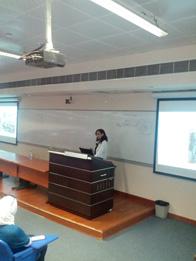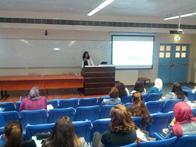Eliane Metni’s Talk


Ms. Eliane Metni is an early adopter of ICT (Information and Communication Technologies) in learning; she pioneered international projects since 1999 and implemented innovative initiatives dedicated to the professional growth of educators. At the heart of her work is the pedagogical use of ICT and the empowerment and professional growth of educators. In 2000, she created the award winning iEARN online teacher professional development courses till today. Later she has designed and created holistic online educational programs and platforms that have reached over 2,500 educators and 100,000 students in over 130 countries. She is a co-founder of the non-profit International Education Association IEA (2003), the Global Teenager Foundation (2011) and Ennoveo (2011), a for-profit company that develops and delivers a holistic practice-based School Professional Development programme that is accredited by The College of Teachers, UK.
In her lecture at LAU, Metni informed the education students and faculty about the Assessment for learning tool piloted at ACS. According to Metni, Creativity, critical thinking skills and 21st century skills are tricky to assess. Teachers spend around 15% of their time assessing kids but mainly through testing in class. Others use portfolios and other informal assessment tools. Professor Steve Jordeen created a lab for using ICT for assessment and uses assessment for learning NOT of learning i.e. in order to develop student learning. Assessment becomes part of life and career skills, learning and innovation and critical thinking skills. In constructivist learning, teachers and students build knowledge together.
Metni presented the platform used online to show the audience how this is done and what students see out of the above process. Online they see the required topic, instructional tips, and graphic organizer. They fit in their writing piece and there is space for peer reviews by other students. Teacher then sees how peers incorporate their comments into their second drafts and evaluate how important they are. Also there is a place where students are asked to do self-assessment. The framework is known as peer scholar (university of Toronto, Jordeens, Pare’ and Callimore).
The aim is to show how ICT helps assessment in the improvement of learning and that peer scholar improves student’s self-reflection due to its evidence based peer and self-assessment tool. Moreover, the Brain theory states that assessment awakens a sense of commitment in us as we assess others as well as the Metacognitive skills. This can be applied in science, music, photography assignments at ACS (teachers commented).